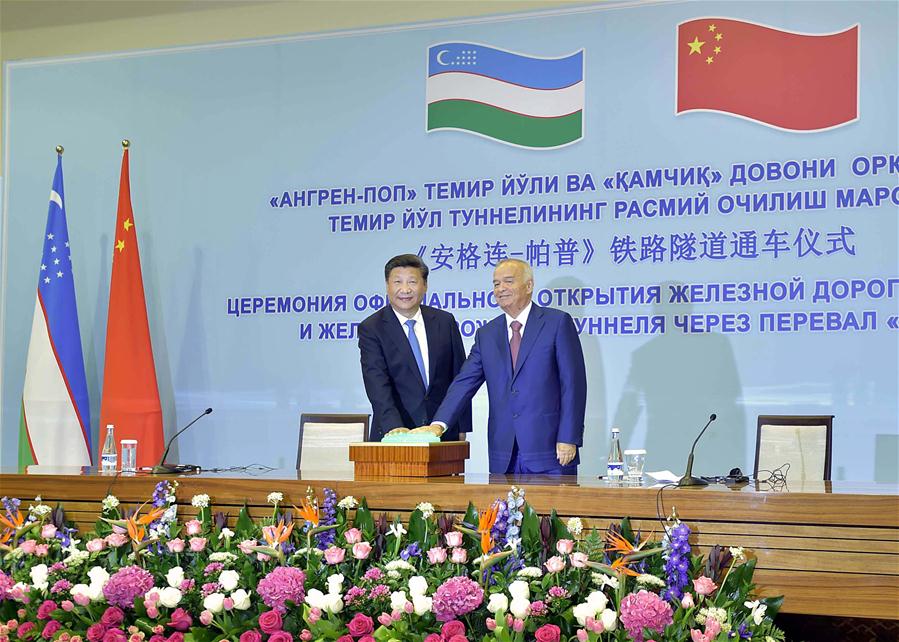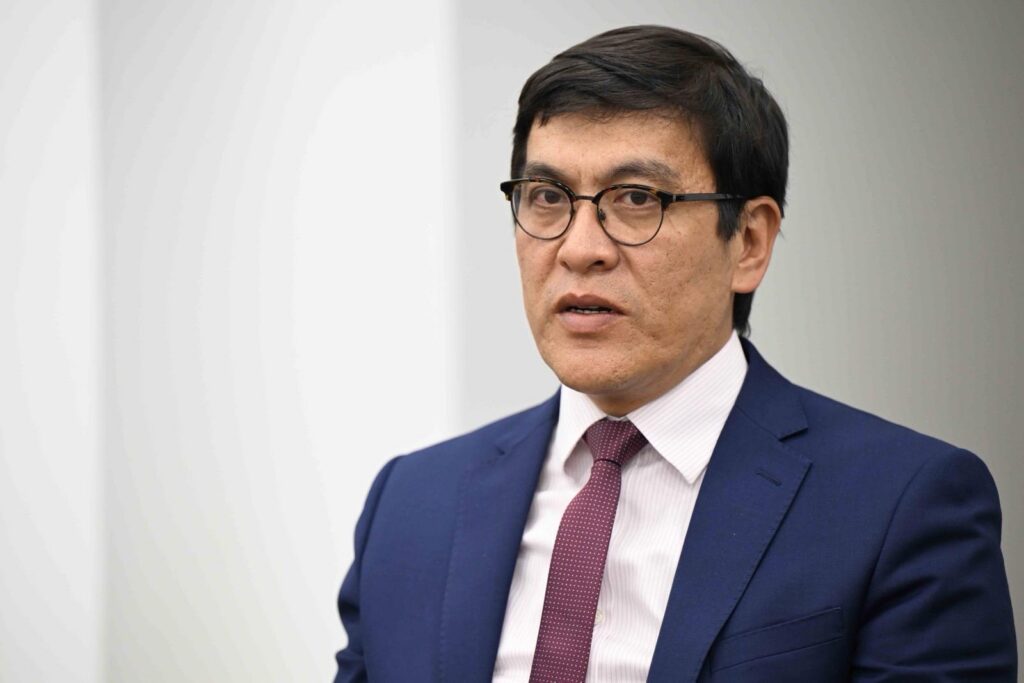TASHKENT (TCA) — While on a state visit in Uzbekistan on June 22, Chinese President Xi Jinping and Uzbek President Islam Karimov inaugurated the Qamchiq railway tunnel in Uzbekistan, saying it is a major achievement of China’s Belt and Road Initiative, Xinhua reported.
The two leaders watched via video link the opening of the 19.2-km railway tunnel, which is part of the Angren-Pap railway line that connects the Uzbek capital Tashkent and the city of Namangan.
Built by the China Railway Tunnel Group, the tunnel goes through Qurama Mountains and is the longest of its kind in Central Asia. Construction of the tunnel began in 2013 and was completed in February this year.
“It is a major achievement of the Belt and Road Initiative that China and Uzbekistan are jointly promoting, and also a new link of friendship and cooperation connecting the peoples of both countries,” Xi said.
He said that land transport connectivity is an important part of the Belt and Road Initiative and a key area in China-Uzbekistan cooperation.
“China is willing to strengthen cooperation with Uzbekistan to constantly improve the connectivity of the infrastructure in the region, thus creating more favorable environment for the development of our two countries and bringing greater benefits to both peoples,” he said.
The Belt and Road Initiative, proposed by Xi in 2013, refers to the Silk Road Economic Belt and the 21st Century Maritime Silk Road. It is a development initiative aimed at boosting trade and investment cooperation primarily through enhancing infrastructure connectivity.
Uzbek President Karimov said the inauguration of the railway tunnel is a major event in the economic and social development of Uzbekistan and expressed gratitude to China for its assistance.









